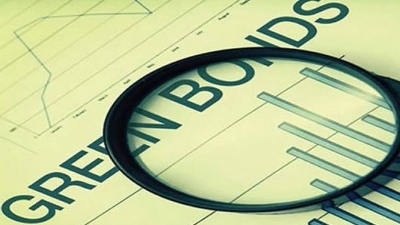Vingroup’s VinFast Commercial and Services Trading LLC officially opened branches in the US, Canada, France, Germany, and the Netherlands on July 12 in preparation for its launch in those countries, taking it closer towards its goal of becoming a global smart electric car maker. It has now developed an organizational structure, expanded partner networks, and prepared for market entry. In terms of business strategy, it has designed relevant plans based on the features of each country. The focus will be on France, Germany, and the Netherlands in Europe initially before it heads elsewhere. “The fact that European and North American governments have announced roadmaps to ban cars with internal combustion engines and switch to electric vehicles presents an opportunity for VinFast to conquer the global market,” said Ms. Thai Thi Thanh Hai, CEO of VinFast Global. “We believe that we will be welcomed around the world thanks to our high quality, flexible, and innovative sales policy and high-end after-sales services in the Oriental style.”
Foreign ventures
Despite Covid-19, many Vietnamese businesses have been actively accelerating their overseas investments. According to the Ministry of Planning and Investment (MPI), total additional investment capital rose sharply from a Vingroup project in the US that added $300 million and VinFast’s project in Germany that added $32 million. The Indochina Rubber Development and Investment Co.’s project in Cambodia also added $76 million in capital.
During the second quarter, FPT Corporation’s FPT Software launched a new office in the Philippines’ capital Manila. It plans to build the office into its second-largest delivery center globally, and will focus on providing Business Process Outsourcing (BPO) services, Software Services, and Managed Services for AMS and IMS targeting English-speaking markets. “As a place where both economic resources and talent converge, Manila is expected to be a major engine for FPT Philippines to grow significantly”, said FPT Philippines’ Managing Director Mr. Ralf Mosqueda.
Meanwhile, other Vietnamese corporations investing abroad have also posted positive business results. In the first quarter of this year, Viettel continued to see success from its international investments. Service revenue recorded growth of 15 per cent year-on-year, of which five out of ten markets saw double-digit growth: Mozambique, Tanzania, Burundi, Peru, and Haiti. Data subscriptions have developed well, and Asian and American markets both have data consumption rates above 50 per cent. Viettel is currently investing in ten markets with different development levels in telecommunications as well as digital transformation.
Vinamilk has also increased its footprint in other countries. In the first month of the year, it received an investment certificate for its joint venture in the Philippines. It will contribute 50 per cent of total capital in the first phase, or some $6 million. The primary activities of the new entity will be importing milk as well as promoting and distributing milk and dairy products in the Philippines, which will be launched in the fourth quarter. As of the end of 2020, Vinamilk owned 100 per cent of the US’s Driftwood Dairy Holding Corporation, Cambodia’s Angkor Dairy Products Co., and Vinamilk Europe Spótka Z Organiczona Odpowiedzialnoscia in Poland. It also holds an 80.29 per cent stake in a company in Laos and contributed 22.81 per cent of capital to a company in New Zealand.
According to a report from MPI, total Vietnamese investment abroad, including new and additional capital, in the first half of this year stood at nearly $547 million, up 2.5-fold year-on-year. Twenty-four new projects were granted investment certificates in the period, with total capital of $143.8 million, while nine projects added a total of $403.2 million in additional capital, up 10.8-fold year-on-year. As of June 20, Vietnam had 1,420 overseas investment projects with total investment capital of more than $21.8 billion. “In general, Vietnamese enterprises doing business abroad have achieved very good results thanks to quickly adapting to market fluctuations prior to Covid-19,” Mr. Vu Dai Duong, Deputy General Director of One IBC, a group specializing in providing services for establishing offshore companies, was quoted as saying.
Considered moves
Overseas investment is a key part of the development strategy of many companies. For example, according to FPT, Manila is known as a regional economic capital boasting technology and high-quality human resources in information technology (IT) and where English is widely spoken. The country’s BPO industry is expected to post revenue of more than $29 billion by 2022, growing 3.2 to 5 per cent every two years. According to technology market analysts, software services in the Philippines will account for 15 per cent of the total global supply of such services in the 2018-2022 period. Together with production centers in Costa Rica and India, which opened in 2020, FPT’s center in Manila will expand its ability to meet the digital transformation needs of customers worldwide.
Meanwhile, investing in ten international markets gives Viettel certain advantages. The total population in its international markets is over 260 million, nearly three times higher than Vietnam’s population. Its overseas investment therefore helps it expand its customer base and markets and maintain growth in the context of a saturated domestic telecommunications market. Furthermore, overseas investment is an opportunity for it to compete with and learn from the world’s leading enterprises and identify policies and development opportunities to become even bigger. In Peru, it is the only telecommunications provider to cross the jungle and cross the Amazon with fiber optic cables and provide mobile coverage to all citizens. The international market is also where the products and services in Viettel’s digital transformation ecosystem are tested and perfected. For example, mobile money, which is relatively new in Vietnam, has been deployed by Viettel in six of its overseas markets and such services contribute a sizeable proportion of its local companies’ revenue. In the context of a world grappling with Covid-19, its early application of digital transformation in business activities such as sales and online multi-channel care has seen Viettel’s brands turn risks into opportunities, creating breakthrough steps in digital transformation and remaining the technological pioneer in its investment destinations.
Vinamilk has also shown its ambition of tapping into new markets of potential and expanding existing markets. It now exports to countries such as South Korea, China, Singapore, and many in Southeast Asia, and Africa is very much a future target.
Profitable activity
Overseas investment adds to the positive business results of major players. Vinamilk posted consolidated revenue in 2020 of VND59.723 trillion ($2.6 billion) and net profit of approximately VND11.1 trillion ($428.6 million), increases of 6 per cent and more than 10 per cent compared to 2019 and exceeding company targets. Viettel’s overseas investment activities in 2020 resulted in a handy VND6.9 trillion ($300 million) in after-tax profits returning to Vietnam; its best business result since it first headed overseas. Despite the Philippines being greatly affected by the pandemic, FPT Software still managed to grow revenue by 65 per cent last year and staffing by over 30 per cent. Such results encourage other Vietnamese corporations to try their luck abroad.
And the Vietnamese Government has introduced policies and support measures to help them do so. A representative from Viettel said the government and the Ministry of Foreign Affairs paid attention to, negotiated, and promoted the signing of investment encouragement and protection agreements with countries where Vietnamese enterprises in general and Viettel in particular have invested, in order to create an appropriate legal framework and promote favorable, safe, and effective investment cooperation. “From the process of laying the initial foundations to the actual deployment in foreign markets, the support of diplomatic missions has been crucial in the process of investment and conducting business,” the representative noted.
Despite the ongoing difficulties around the globe, Vietnamese enterprises are still making major efforts to invest overseas. One of the country’s largest corporations, the TH Group, has overseas plans on the drawing board but the pandemic has made its presence felt, it told VET. It continues to implement projects in dairy farming in Russia and has a beef project in Australia. Certain processes have been affected by the pandemic, such as construction and operations, but authorities in the host countries have provided support.
The Viettel representative noted that during its 15 years of investing overseas, it has overcome many challenges from natural disasters, epidemics, and political instability. “Viettel has identified digital transformation as a solution to help resolve any and all difficulties,” the representative added. “This not only helps businesses increase their efficiency and save costs, but also contributes to improving the customer experience and boosts digital transformation in countries where Viettel is doing business.”









 Google translate
Google translate